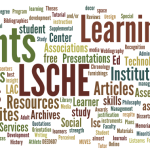Learning Support Center Management

Best/Promising Practices for Learning Support Centers in Higher Education
[Revised Edition of the May 2009 version presented at an Innovative Educators Webinar and then presented by Frank L. Christ at a NCLCA post conference workshop in Golden, Colorado on October 3rd, 2009.]
Best practices are listed in 9 areas: 1) general, 2) clientele, 3) programs & services, 4) technology, 5) partnering, 6) program evaluation, 7) publicity & public relations, 8) staff training and 9) certification & recognition.
GENERAL [1-10]
- The LSC has a mission statement congruent with its division and institutional mission
- The LSC has the support of central administration
- The LSC has an adequate budget to support its mission, goals, and objectives
- The LSC has an adequate professional staff to support its mission
- The LSC has an adequate clerical staff to support its mission
- The LSC uses volunteers to support its mission
- The LSC has annually developed and followed a systematic plan based on feedback and program monitoring
- The LSC has developed a Three or Five Year Plan that is shared with administration
- The LSC has an Advisory Board
- The LSC is centrally located and is accessible at convenient times with adequate space for its programs and services
- The LSC has adequate equipment and furnishings to implement its programs and services
- The LSC has access to learning materials for student use that allows for learning style choices
CLIENTELE [13-14]
- The LSC serves the total campus community: students, faculty, administration, staff, and alumni
- The LSC serves academic departments and their faculty through orientations to the center's programs and services, faculty invited course presentations and/or workshops, student referrals and feedback service
PROGRAMS & SERVICES [15-20]
- The LSC allows walk-in Learning & Study Strategies Assistance
- The LSC encourages and tracks referrals for Learning & Study Strategies Assistance
- The LSC offers campus-wide workshops
- The LSC offers workshops to Campus Groups (Student Associations)
- The LSC offers Faculty Invited Workshops to give In-Class Learning Strategies demonstrations
- The LSC offers workshops to Administration, Faculty, and Staff
TECHNOLOGY [21-24]
- The LSC uses technology to capture, analyze, and report usage data
- The LSC uses technology to enhance individual student learning
- The LSC uses technology to deliver its programs and services
- The LSC uses technology including social media to develop and maintain communications with students and faculty
PARTNERING [25-35]
- The LSC is involved in the institutional student orientation program
- The LSC is involved in the institutional new faculty orientation program
- The LSC is involved in supporting the learning needs of online students
- The LSC is involved in supporting the needs of ESL students and faculty
- The LSC offers programs and services to students in dorms, campus center, fraternity and sorority houses, clubs and associations
- The LSC offers, upon faculty invitation, classroom presentations on learning and study strategies appropriate to a course
- The LSC offers or partners online tutoring with academic departments
- The LSC partners with academic departments that have high risk courses to develop and manage Supplemental Instruction
- The LSC partners with other academic support services: TRIO and Upward Bound, Veterans, and other special populations
- The LSC partners with the campus bookstore to display learning and study skills materials used in the center's programs and services.
- The LSC partners with School Relations to support outreach to local high school administration, faculty, and students
PROGRAM EVALUATION [36-41]
- The LSC has developed a mission and goals statements with specific objectives and follows a systematic plan based on feedback and program monitoring
- The LSC uses benchmarking to review its practices
- The LSC uses both qualitative and quantitative measures for program evaluation
- The LSC programs and services are evaluated by faculty and students
- The LSC is evaluated by an outside evaluator
- The LSC publishes and disseminates an annual report to appropriate administrators
PUBLICITY & PUBLIC RELATIONS [42-52]
- The LSC has both a publicity and a public relations policy to promote its programs and services
- The LSC facility is visible through campus signage
- The LSC is visible as an institutional support service in institutional publications: catalog, web site, and recruitment literature
- The LSC attempts to maintain a non-remedial image of the center as an academic resource
- The LSC has ongoing communications with deans, department heads and key faculty
- The LSC has descriptive materials (videos, photos, bookmarks, brochures, flyers) for campus dissemination to administration, faculty, and students
- The LSC publishes and disseminates a regular newsletter (print, email, or website)
- The LSC has a virtual presence through its website
- The LSC uses social media (RSS Feeds, Twitter, Blogs, Google.docs) to build and maintain a LSC community
- The LSC maintains a PR and Publicity scrapbook as an ongoing record of its activities
- The LSC staff reads and shares LRNASST and LSCHE information and research with faculty and administration
STAFF TRAINING [53-58]
- The LSC holds a staff meeting at the beginning of the fall semester to develop or revise its mission, goals, and objectives
- The LSC holds a staff meeting at the end of the spring semester to review outcomes based on its mission, goals, and objectives
- The LSC holds regular staff meetings preferably weekly
- The LSC has each staff member develop a professional development plan
- The LSC holds a year-end review of each individual staff development plan and its hoped for outcomes
- The LSC requires a report when staff attend a professional conference or campus committee meeting
CERTIFICATION and RECOGNITION [59-66]
- The LSC chief administrator has institutional recognition as a program coordinator or director
- The LSC administrator and/or staff are recognized by administration and faculty for their academic publications, research, consulting, and leadership
- The LSC chief administrator is certified By NCLCA as a Learning Center Professional
- The LSC staff is represented on relevant campus committees and task forces
- The LSC' tutorial training program is accredited by CRLA
- The LSC Tutors are certified by ATP
- The LSC Website has won a Website Award
- The LSC has received campus, district, or national recognition

